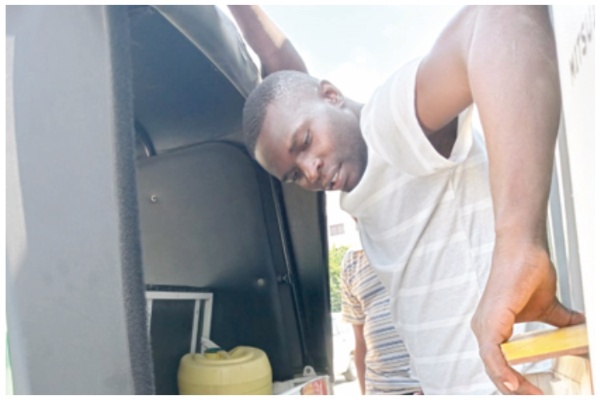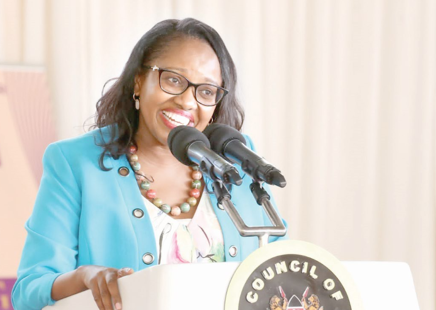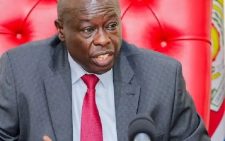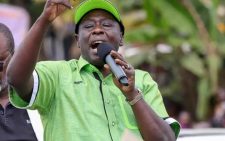Electric tuktuks a game changer in Mombasa public transport system

Wycliffe Mwele swiftly glides his Tuk Tuk along the links road in the balmy Nyali area, before finally coming to a stop at Emos E-mobility yard.
Here, the three-wheeler will be charged for the next four hours before the driver returns to pick it up for another round of operation.
The electric tuk-tuk is one of eight “go green” three-wheelers that were launched in Mombasa three months ago as part of efforts to embrace clean energy.
Unlike the diesel and petrol-powered tuk-tuks, the electric alternatives offer a smoother ride and produce minimal noise.
“Most of our clients find the vehicle friendly, free from the usual noise and the shaking,” Mwele said adding the electric is cost effective since it does not need fueling.
“Once you charge at night, that’s it. Unless you want to boost your charge,” said Mwele.
Peter Makowe, the manager in charge of maintenance at the Emos yard, says the electric three-wheelers operate with two batteries; a 51 voltage and a 12 voltage.
The 51V battery, he says runs the motor and the gearbox while the 12V, which is also supported by a small solar panel located on the windscreen, runs the lights and alarms.
Demand for power
Currently, according to Makowe, the electric Tuk Tuks in Mombasa rely purely on electric power as they do not have backup power systems to compliment electricity.
In the event of a prolonged power blackout, Makowe says it becomes a big challenge as the three wheelers are unable to operate.
He said plans are on course to add more electric tuk tuks in the next few months, noting that with the additions, the demand for more power will increase and so will be the need for additional backup.
“We are planning to install solar panels to serve as backup such that we don’t plunge into crisis in the event of a power outage. We understand with more vehicles coming the need is likely to increase,” explained Makowe. The government has demonstrated commitment to enhancing Kenya’s climate action by adopting low-carbon and efficient transportation systems.
President William Ruto has said the government will adopt innovative, clean and sustainable energy technologies.
He said this will not only reduce greenhouse gas emissions but also provide cheaper transport and spur the growth of the electric vehicle industry.
Boost incomes
The President noted that two and three-wheeler vehicles comprise the largest share of the national fleet and are mostly used by those at the bottom of the wealth pyramid.
“The adoption of electric mobility is a priority intervention to address the challenges of pollution,” he said.
He made the remarks last Friday during the launch of the national e-mobility programme at Mama Ngina waterfront, Mombasa.
President Ruto assured boda boda operators that the transition to e-mobility will significantly boost their incomes. “Electric bikes are cheaper to run than petrol.”
The President said the government will phase out motorcycles powered by internal combustion engines.
Kenya, he added, is committed to honouring its obligations under the United Nations Framework Convention on Climate Change.










